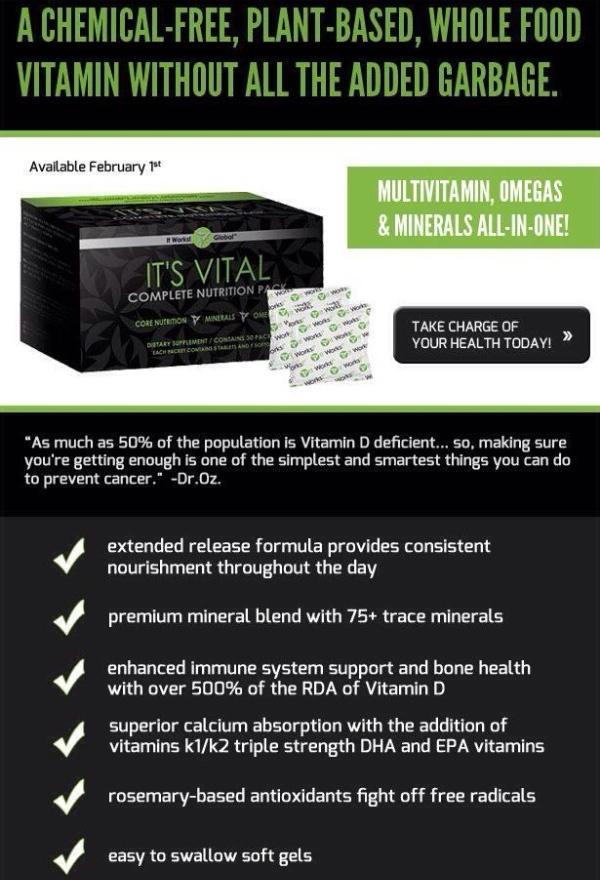In a world brimming with kale smoothies and turmeric lattes, the allure of natural supplements has captured the imagination of health enthusiasts and skeptics alike. With promises of disease prevention and wellness enhancement, these little bottles of nature’s bounty line our shelves, whispering tales of ancient remedies and modern miracles. But as we navigate this vibrant landscape of wellness, a pressing question emerges: are these natural supplements truly the guardians of our health, or are they merely the artful creations of clever marketing? Join us on a journey through the leafy paths of nature’s pharmacy, where we explore the truths, myths, and everything in between, with a warm and open heart. Disease Prevention“>
Disease Prevention“>
Unveiling the Truth: Natural Supplements and Disease Prevention
In the world of wellness, natural supplements are often celebrated as nature’s little miracles, promising to bolster our health and ward off diseases. But how much of this is grounded in reality? While some supplements, such as vitamin D, omega-3 fatty acids, and probiotics, have shown potential in supporting overall health, it’s essential to approach these claims with a discerning eye.
- Vitamin D: Often referred to as the sunshine vitamin, it plays a crucial role in bone health and immune function.
- Omega-3 Fatty Acids: Known for their anti-inflammatory properties, these are linked to heart health.
- Probiotics: These friendly bacteria may support gut health and boost immunity.
Yet, it’s vital to remember that supplements should complement a balanced diet, not replace it. Quality matters, and not all products are created equal. Before integrating any supplement into your routine, consult with healthcare professionals to ensure it aligns with your individual health needs and goals.
Exploring the Science: What Research Really Says
When diving into the realm of natural supplements, the scientific community offers a mixed bag of insights. Research suggests that certain supplements may indeed provide health benefits. For instance, Omega-3 fatty acids are well-documented for supporting heart health, and Vitamin D is crucial for bone health and immune function. However, these benefits often depend on individual health conditions, dosages, and overall diet.
Despite these potential benefits, it’s crucial to approach supplements with a discerning eye. Many products on the market come with bold claims but lack substantial evidence. Here’s what to keep in mind:
- Quality Matters: Not all supplements are created equal. Look for third-party testing and certification.
- Consult Healthcare Providers: Always discuss with a healthcare professional before starting any supplement regimen.
- Balanced Diet First: Supplements should complement, not replace, a nutritious diet.

Decoding Marketing Myths: Separating Fact from Fiction
In the bustling world of wellness, natural supplements often claim a spotlight with promises of disease prevention. But how much of this is rooted in reality? The truth lies in a nuanced understanding of both science and marketing strategies. Natural supplements can offer health benefits, but they are not a cure-all. Here’s what you need to know:
- Evidence-Based Benefits: Some supplements, like omega-3 fatty acids and vitamin D, have been backed by scientific studies for specific health benefits. These can support overall well-being when used correctly.
- Quality Matters: Not all supplements are created equal. Purity, sourcing, and manufacturing practices can vary, impacting their effectiveness.
- Complement, Not Replace: Supplements should complement a balanced diet and healthy lifestyle, not replace medical treatments or regular check-ups.
It’s essential to approach these products with a discerning eye. Consult healthcare professionals before making them a staple in your health regimen. Remember, wellness is a journey, not a magic pill.

Guided Choices: Expert Tips for Smart Supplement Use
When it comes to harnessing the potential of natural supplements, making informed decisions is crucial. Expert insights can guide you in selecting supplements that align with your health goals. Here are some tips to consider:
- Research Ingredients: Dive deep into the active components of each supplement. Understanding their role can help you assess their potential effectiveness.
- Consult Professionals: Always discuss with healthcare providers before starting any new supplement regimen. They can offer personalized advice based on your health history.
- Quality Matters: Choose products from reputable brands that prioritize quality and transparency in sourcing and manufacturing.
- Stay Informed: Keep up with the latest research and updates on natural supplements. The landscape is ever-evolving, and staying informed ensures you’re making the best choices.
By taking a thoughtful approach and seeking expert guidance, you can navigate the world of natural supplements with confidence, avoiding the pitfalls of marketing hype.


































